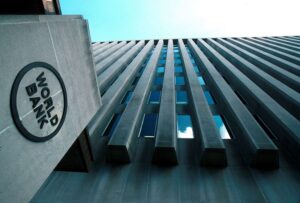
The Cabinet of Ministers of Ukraine has approved the document “On the Establishment of the Ukrainian Part of the Ukrainian-Japanese Joint Committee for the Implementation of the Joint Crediting Mechanism,” the Ministry of Environmental Protection and Natural Resources of Ukraine reported.
Earlier, Ukraine joined Japan’s Joint Crediting Mechanism (JCM). The goal of the program is to reduce greenhouse gas emissions by introducing the world’s leading technologies for decarbonizing various sectors of the economy through investments by Japanese organizations. Ukraine and Japan signed a memorandum of cooperation under Article 6 of the Paris Agreement earlier this year.
“This decision is important for achieving our climate goals through joint lending instruments. Japan is a promising partner on this path. Through joint lending, we will be able to attract Japanese technologies and innovative developments to reduce greenhouse gas emissions. This includes the implementation of the UN Framework Convention on Climate Change and the Paris Agreement, and the green recovery of Ukraine according to the latest practices,” Minister Svitlana Hrynchuk said in a statement on the Telegram channel on Tuesday.
It is noted that the next step will be to approve the composition of the committee and its regulations. The committee is created to coordinate efforts to strengthen bilateral cooperation in the fight against climate change. For its part, Japan has already completed all the preparatory steps to launch cooperation.
The JCM reportedly allows Japanese organizations to invest in decarbonization projects in partner countries. The reduced greenhouse gas emissions resulting from such projects are partly credited as Japan’s contribution to its own emission reduction targets and partly in the country where the project was implemented. Today, the JCM mechanism operates in 29 countries.
According to Hrynchuk, for Ukraine, this means access to Japanese technologies – some of the best in the world – and guaranteed investments for green recovery. This will be a tangible support in overcoming the consequences of Russian armed aggression.

Ukraine’s state budget has received $235 million in concessional financing from the Government of Japan under the World Bank’s new systemic projects, the Resilient, Inclusive and Environmentally Balanced Enterprise (RISE) and the Increasing Access to and Resilience of Education in Crisis-affected Ukraine (LEARN).
As the Ministry of Finance reported in a press release on Wednesday, the RISE program received a $130 million loan that will be used to address critical issues that hinder the growth and sustainable development of the private sector.
The Ministry clarified that the $105 million in Japanese funds received under the LEARN project is the result of the Ukrainian government’s implementation of measures to ensure safe face-to-face learning in schools by providing subventions for shelters and school buses in 2024.
The projects are implemented using the Program-for-results (PforR) financial instrument, when funds are allocated after Ukraine has achieved some of the results.
The Ministry of Finance noted that by the end of 2024, Ukraine expects to raise another $120 million and $95 million under RISE and LEARN, respectively.

The Japanese government will provide Ukraine with a loan of 471.9 billion yen ($3.08 billion at the current exchange rate) under the G7’s Emergency Revenue Assistance (ERA) initiative, Kyodo news reported on Monday.
It is noted that as of October 28, the G7 countries reached a final agreement to start providing assistance to Ukraine in the amount of about $50 billion and to distribute these funds, in particular, the EU will provide a loan of EUR 18.115 billion.
It is specified that each G7 country will conclude an individual loan agreement with Ukraine, distributing loans in installments from December 1, 2024, to the end of 2027. The loans will be repaid from the proceeds of Russia’s frozen assets, and Ukraine will not actually pay them back.
As reported, on October 25, the G7 in Washington announced that it had reached a consensus on a collective loan of $50 billion to Ukraine. Earlier, the United States said it would provide $20 billion under the ERA. Then, the EU confirmed plans to provide Ukraine with about EUR18 billion in 2025 in the form of new macro-financial assistance, the terms of which are tied to the Ukraine Facility.
On October 22, the UK also announced that it was providing Ukraine with a GBP2.26 billion (almost $3 billion at current exchange rates) military loan to purchase the necessary military equipment under the ERA.
Back in June, immediately after the G7’s decision on the ERA initiative, Canada announced the allocation of CAD5 billion ($3.6 billion at the current exchange rate) under the initiative.
The European Commission recalled that the consensus among G7 members was facilitated by the creation of a special Ukraine Loan Cooperation Mechanism (ULCM) by the EU, which will receive extraordinary revenues from frozen Russian sovereign assets and other voluntary contributions made by member states or third countries. These resources will then be used to repay the principal and interest under Ukraine’s relevant bilateral loan agreements with creditors.
The IMF, in its updated EFF program following the fifth review, noted that if the war ends at the end of 2025, Ukraine will need $33.1 billion of the $50 billion to support its budget: $19.1 billion next year, $9.2 billion in 2026, and $4.9 billion in 2027.
In a negative scenario, if the war continues until mid-2026, Ukraine’s budget will need all $50 billion to cover the deficit.

Japan has handed over new trucks to Kherson’s utility companies, said Roman Mrochko, head of the city’s military administration. “We received the new Japanese equipment under the Grant Agreement for the Emergency Recovery Program between the Japan International Cooperation Agency (JICA) and the government of Ukraine,” Mrochko said in a telegram on Saturday.
He noted that Kherson really needs such equipment and thanked international partners for their help.

Japan plans to provide Ukraine with $3.3bn in support loans using interest from frozen Russian assets, Kyodo has quoted diplomatic sources as saying.
According to the sources, during the summit, G7 members agreed to allocate a total of $50 billion to support Ukraine.
The US and the EU are expected to allocate $20 billion each, while Japan, Britain and Canada will “share” the remaining $10 billion.
The G7 plans to start implementing the project by the end of this year.

The Government of Japan has handed over two Nikken mechanized demining vehicles to the State Emergency Service (SES), which will be sent to Zaporizhzhia and Donetsk regions on July 9, the press service of the Ministry of Internal Affairs reported.
“We would like to thank the government and the Embassy of Japan, as well as the JICA international cooperation agency, for their help and joint resilience in difficult times for Ukraine,” Interior Minister Ihor Klymenko was quoted as saying in a statement on the press service’s Telegram channel on Tuesday:
For his part, Japanese Ambassador to Ukraine Matsuda Kuninori expressed his admiration for the pyrotechnics and sappers who are tirelessly clearing Ukrainian soil of explosive devices.
“The transferred vehicles will be sent to Zaporizhzhia and Donetsk regions today to perform the necessary tasks,” the statement said.